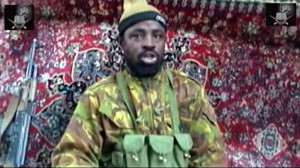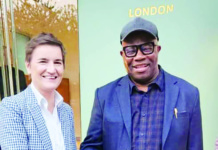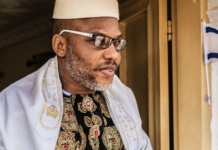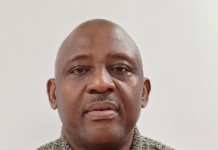Home Secretary Theresa May has announced that the government is seeking to make the Nigerian-based extremist group Boko Haram, alongside the UK-based group Minbar Ansar Deen, illegal within the UK.
If the Home Secretary’s request is approved by Parliament then membership or support of either of the two radical Islamist organisations will become a criminal offence under UK terrorism laws.
The proscription could come into effect as early as this week, the Home Office said.
Boko Haram is a militant Islamist group based in Nigeria, where it is led by the country’s most wanted man, Abubakar Shekau. Officially known as the “Congregation and People Committed to the Propagation of the Prophet’s Teachings and Jihad,” its more popular name roughly translates as “Western education is sinful” in the Hausa language.
Founded by the since-killed Mohammed Yusuf in 2001, the organisation seeks to establish Sharia law in the country. The group is also known for attacking Christians, bombing churches and attacking schools. Over the past 12 years it has been held responsible for the deaths of around 10,000 people.
The activities of the group are usually confined to the impoverished, predominantly Muslim parts of northern and central Nigeria.
Historically there is little evidence of Boko Haram targeting the UK, said Raffaello Pantucci, senior research fellow at the Royal United Services Institute think tank, the self-described “leading forum in the UK for national and international defence and security.”
“Britain’s Nigerian community is 90% Christian,” Pantucci told the BBC, adding that Nigerian terror suspects in the UK were “usually Muslim converts.”
However, earlier this year Boko Haram kidnapped a French family in Cameroon. A Nigerian government report revealed the group was paid more than £2 million before releasing its hostages.
Pantucci said that the Home Office’s move to ban the group could indicate that it is now becoming more international, or at least “leaning in that direction.”
The Home Secretary had already flagged up Boko Haram, among other international extremist organisations, in a speech on terrorism in July 2011.
She said: “Increasingly, the threat to Britain comes not just from al-Qaeda’s core leadership itself, but from these so-called al-Qaeda’s affiliates in places like Yemen and North Africa… and from associated groups like al-Shabab in Somalia and Boko Haram in northern Nigeria.”
Minbar Ansar Deen, meanwhile, is based in the UK.
Also known as Ansar al-Sharia UK, the group – according to the Home Office – promotes terrorism by distributing content through a forum on its website, which encourages individuals to travel overseas to engage in extremist activity, specifically fighting, according to the Home Office.
Under the Terrorism Act 2000, the Home Secretary can proscribe an organisation if it is believed to be concerned in or connected to terrorism. However, a high threshold, taking into account the threat the group poses to the UK, must be met for the minister to go ahead and proscribe an organisation.
If the two organisations are banned, it will be illegal to support or become a member of either group, to arrange meetings or wear clothing in support of them. Offenders could face fines of up to £5,000 or a maximum prison sentence of 10 years.
There are currently 49 international terror organisations proscribed under the Terrorism Act 2000, including al-Qaeda, al-Shabab and Islam4UK, as well as 14 paramilitary groups connected to the Troubles in Northern Ireland.
The Home Office has not yet offered further information on why it is pursuing the ban of both groups.
Pantucci said that the move indicated that the government sees them as a “potential threat.” Banning the groups would give the police powers to tackle their support networks.
Decisions to proscribe the organisations are understood to be unrelated to the murder of the soldier Drummer Lee Rigby near Woolwich barracks in south-east London in May.
However, Minbar Ansar Deen’s website has links to Abu Nusaybah, who was arrested after appearing in May on BBC’s Newsnight talking about Michael Adebolajo, one of the suspects in the Woolwich murder.
“It is impossible to say that this constitutes ‘a link,’” said Pantucci, “but looking at the group’s website they certainly seem to come from the same ideological constellation.”
A Home Office spokesman said: “The government is determined to work with the international community to tackle terrorism and take the steps necessary to keep the UK public safe.
“Proscription of these groups sends a clear message that we condemn their activities.”
The news of the UK’s banning of Boko Haram comes the same week as the Nigerian government announced a ceasefire against the group. Details of the decision are as yet, but are understood to be related to the commencement of the Muslim holy month of Ramadan, which this year runs from 9 July to 7 August.










